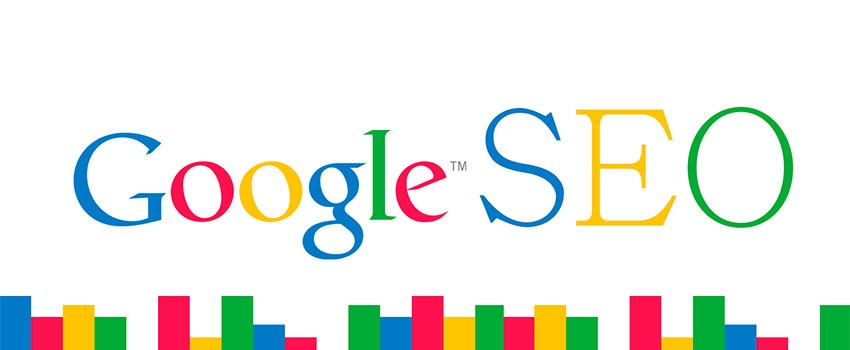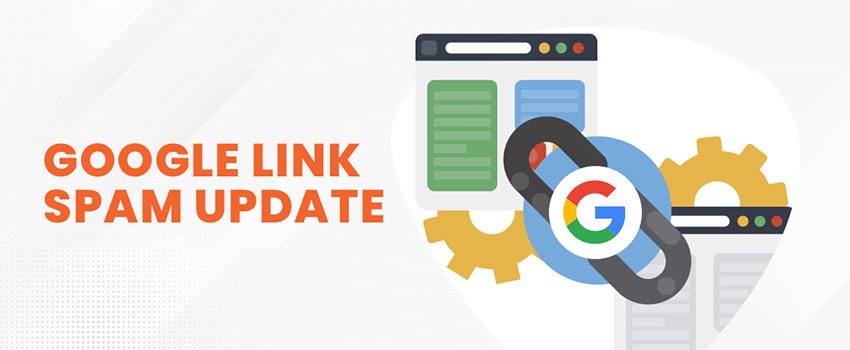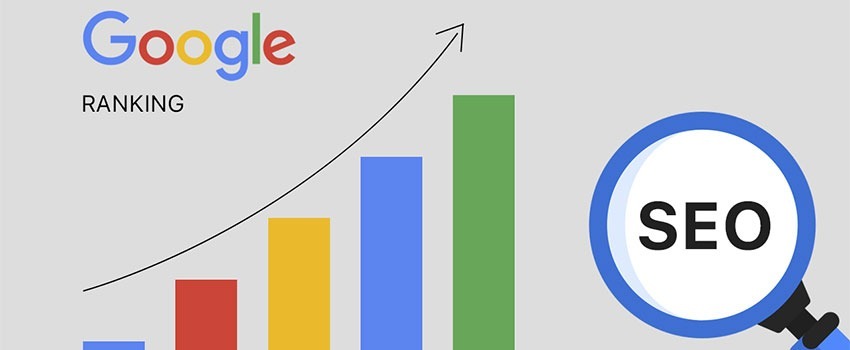Enhance your search engine performance in simple steps
Search Engine Optimization; (SEO) is essentially seeking to strengthen a website’s presence and visibility in the Search Engine Result Pages (SERPs). The emphasis on search engine optimization stems from the amount of traffic and sales generated from a top position in SERPs. One benefit derived from good SEO is that top 10 listing in search engines can be very helpful in terms of traffic. But more than just generating traffic, it comes with great potentials for sales and conversion. SEO continues to play an important role in online marketing strategy. There are several benefits to a good SEO strategy and we will take a look at a few of them.
Further reading:
How to Build a Good Customer Experience to Improve your Website Conversion Rate
Key SEO Mistakes That Will Kill Your Ranking Gains
Benefits of Good SEO
Traffic Boost
The top positions on the search engine result pages(SERPs) receive a majority of the impressions and clicks. This will translate into higher sales because traffic and sales are significantly correlated. The top ten listings generate 5 times more traffic than any websites on the second page. Good ranking which comes from an effective SEO strategy is a secured and sure way to succeed online.
Further reading:
A Complete Guide To Good SEO For Beginners
12 SEO Factors That Boost Website Ranking
Return on Investment (ROI) – Good SEO results in increased conversions. Regardless of whether you are running an ecommerce or non-ecommerce site, increased rankings which result from good SEO implies higher returns in your investment.
Further reading:
5 Steps to Review and Improve Your SEO
11 Most Important SEO Metrics For Google Ranking
Cost effectiveness
SEO is one of the most cost-effective marketing strategies. First, it targets users who are actively looking for your specific products and information for which your website will have to rank well for it to appear in the top search results for. The leads generated by paid advertising cost 61% more than leads generated by an inbound strategy like SEO. And since SEO also targets users who are actively searching for products and services, the traffic resulting from SEO is more qualified than many other marketing strategies, resulting in cost-savings for website owners.
Site usability Advantages – SEO makes user navigation more friendly just as it is designed to improve search engine usability. This makes search engines to crawl your site and find pages and also makes it easy for users to find information on your website.
Branding Advantages – Top ranking position in search engines result in significant impressions and this translates into having more views for your pages and this simply go to grow the awareness of your brands.
Related topic to read:
SEO Tips For a Local Google My Business Page
Generally, strong online presence comes with a well optimized website which also produces a higher exposure rate. SEO is affordably cheap, easy and needs some care and time to implement. But there are some mistakes that SEO managers make in implementing it on websites. These mistakes harm the performance of websites and it is important that you know, understand and work to avoid them. We will look at the common mistakes people make in the implementation of an SEO programme and how to avoid them. We discuss them below.
Common SEO Mistakes You Should Avoid
Over-Doing SEO is Dangerous
SEO is good but despite its overwhelming benefits, overdoing it can hurt your website and its rankings. Over doing things could be seen by the Search Engines as an attempt to game the system and that is usually punished. So you must act normally and do things right to be seen by the search engine as trustworthy.
The use of too much flash and scripts on the website
One common mistake in SEO is the use of too many flash and other scripts in the website. Website design has changed from just aesthetics to quality and the use of flash is no longer a good design element. Even though flash elements make your website appealing, it also does give you a down grade when it comes to SEO. Too much flash will reduce the content available for spiders to crawl and use in the ranking of your website. Once there is not enough content for search engine to index your first loading page, the spider will not be interested in your website. This will result to a very low page rank. If you must use flash on your page, then it is recommended that you combine some texts with your flash elements because search engines are interested in texts not flash.
Also read:
Key SEO Mistakes That Will Kill Your Ranking Gains
Poor use of ALT tags on images
Search engines understand images based on the text description that come with them Alternate tags are used to describe the images on web pages. Try to incorporate these tags every time images are used on your website. And when writing these ALT tags for the images, the best SEO efforts means including some of the keywords in these tags.
Also read:
Basic Tips and Tricks That Can Boost The Speed of Your Website
Tips and Tricks That Improve Website Conversion Rate
Keyword Stuffing
Keywords are the foundation of search engine optimization. Although keywords and their relevance are decreasing as search engines focus on user experience, content ranking is still determined by the presence of relevant keywords. However, some content developers stuff their content with keywords just to get higher ranking for those keywords. This is not a good practice and will lead to a demotion for the affected page. Avoid stuffing your content with a particular keyword. Do not duplicate your page titles with keywords to get prominence. Just write naturally using the keywords appropriately.
Here is a basic guide to using keywords on your website:
1. Page Titles
Optimizing page titles is part of technical SEO, and is a good starting point when using keywords for SEO.
A page title describes the main subject of your page and shows up as the first line of a search results entry to let both Google and searchers know exactly what the page is about.
In many cases, the page title may be the same as the headline for a blog post or the name of the page (like “about” or “services”), but it doesn’t have to be. You can use SEO software like Yoast SEO to tweak the SEO title to improve search ranking potential.
The best practice when writing page titles is to use your target SEO keywords or keyword phrase at the start of the page title. That’ll make sure that it’s seen as more relevant. Also, more practically, your page title won’t get cut off in mobile SERPs, which can happen on small screens.
2. Meta Descriptions
The next important area for the use of keywords for SEO is the meta description. This shows up as the second part of a search results entry. Though the meta description is no longer a direct ranking factor, it can help Google determine how relevant your content is to what people are searching for.
The meta description also helps searchers decide whether to click through from a search result to see the full content on your website. That’s why it’s very important to use the right keywords in this section.
3. Subheadings
Subheadings help make your content scannable, giving readers’ somewhere to pause. Subheadings may help visitors decide about the relevance of content to their needs. They may also appear as part of a featured snippet or answer box.
The best practice is to use keywords in at least a couple of subheadings.
4. Content
One of the most important places to optimize use of SEO keywords in is in your main content. That’s because content is one of the top SEO ranking factors. But it’s essential to point out that poor keyword usage can actually hurt your search ranking.
For example, it’s crucial to avoid keyword stuffing. If you’ve got keywords in every other sentence the chances are your content will incur Google penalties. Google has an excellent example of the kind of thing to avoid.
We sell custom cigar humidors. Our custom cigar humidors are handmade. If you’re thinking of buying a custom cigar humidor, please contact our custom cigar humidor specialists at custom.cigar.humidors@example.com.
Your readers won’t like it much, either, as keyword stuffed content can be really hard to read.
Takke Away: Here’s how you use keywords effectively in content:
First, use your main keyword in the first couple of sentences of your content, or at least within the first paragraph.
Next, use that keyword and variations of it, throughout the content.
The best practice is to include latent semantic indexing (LSI) keywords rather than the exact keyword every time. These might include some of the phrases that showed up in the SEMrush SEO content template we talked about earlier.
The rule is that you write for humans first, and make content readable and understandable.
Also read: Best Content Strategies to Improve SEO and Website Ranking
5. Images
When you’re considering how to use keywords in a website, images probably aren’t the first items you think of, but here are a couple of reasons why you can’t ignore images. Basically you should note that images are indexed too, creating another way that people find your content.
Second, images can help you handle content accessibility, which is useful for the millions of searchers worldwide who experience a disability.
So, how and where should you use keywords for SEO in images?
First, make sure any images you use are relevant to your content.
Next, give them a file name that reflects that relevance. You can include keywords or LSI keywords here if it makes sense.
Use SEO keywords in image titles, which are little pieces of text that pop up when you hover your mouse over an image.
Finally, use SEO keywords in alt text. This is the part that helps with accessibility. The best practice for using alt text with images is to make it descriptive; don’t just use the keyword.
Also read: Basic Tips and Tricks That Can Boost The Speed of Your Website
6. URLs
Ever seen those URLs that are just strings of numbers and weird characters? Those can be a big turnoff for visitors.
The best URLs give visitors – and Google – a clue about what’s on the page, so you want to make them descriptive. And that means using SEO keywords in the URL. The best practice is to keep URLs short, and include no more than one or two keywords in a way that makes the URL make sense to people who are visiting.
As before, avoid keyword stuffing. Read more on how to Use Keywords in Website Content for SEO Gains
7. Link Anchor Text
Links are one of the top three SEO ranking factors, so you absolutely have to optimize these for SEO. The golden rule is: vary your anchor text. That’s the clickable text that’s highlighted as a link.
If you use the same anchor text for every inbound link you create, that’s an SEO ranking red flag for Google, and it might get you penalized. Instead, use LSI keywords to vary inbound anchor text.
The same rule applies to internal linking, which helps both Google and searchers find other site content. And it applies to external links, too. If too many links on your site use the same anchor text to link to another site, Google might think it’s a black hat SEO link scheme, and penalize your site, reducing its search ranking.
Also read: Basic Guide and Tips for Online Marketing Success
Content duplication
It is a mistake to steal content from other websites. Recent updates to search engine robots have made them able to distinguish an original content from a plagiarized one. You need to come up with good yet informative content to entice your readers to come back. Copying content from other websites is not conducive to your page ranking. Where you have to use content from other websites, you need to edit it to your own to avoid any negative consequences.
Although the Google duplicate content penalty has become questionable with many SEO arguing that it does not exist, there is evidence suggesting that copying content from other websites just to give the search engines the impression that your website is fresh only make the search engines ignore your content as Google can detect it is copied or scrapped content..
Also read: User Experience: An Important SEO Factor
Finally, keep to the best practices in the SEO world and be guided by the recommended guidelines especially from Google.
Did we miss anything, you can provide in the comment box.











